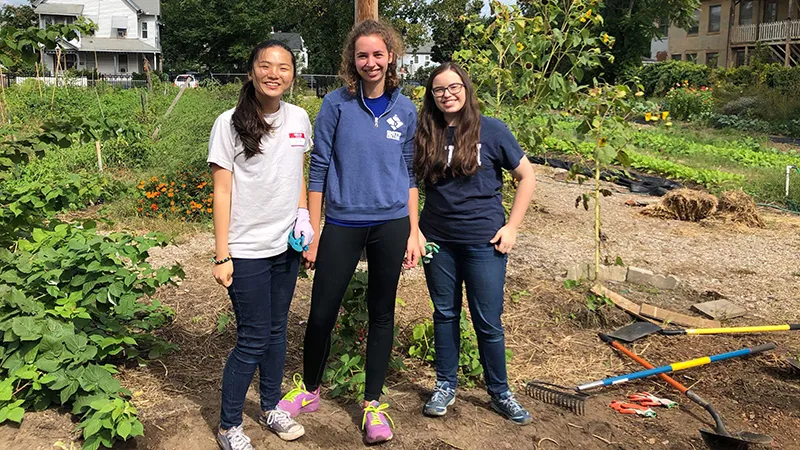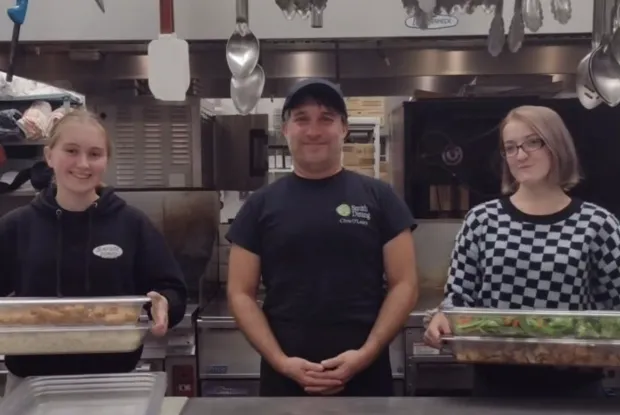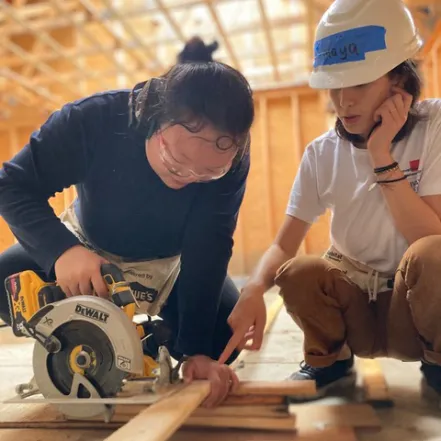Community Initiatives
The Jandon Center engages faculty, students, and community partners on social-change projects that tackle community-driven goals.
Through experiential learning and scholarship, students build essential capacities in critical thinking while providing significant leadership on urgent, complex issues facing communities and society.
We partner with over 40 local and global organizations supporting K-12 outreach, food and housing security, refugee and immigration, public health, arts and culture, climate advocacy, incarceration, and more. To learn more about our partners, check out this interactive map of local organizations. To join us in this work, please make an appointment.

Smith Alliance for Justice & Equity
Math Resilience Project

STEAM Outreach
The STEAM Team is composed of Smith undergraduates interested in increasing access to science, technology, engineering, art, and math at Smith College and the surrounding communities. Members have a passion for connecting STEAM-related content, inspirational activities, and experiential learning opportunities with community needs.
Food Rescue Network
The Smith College Food Rescue Network was founded in the Spring of 2022 by Smith alumna Shastia Azulay. As a Jandon Activist Fellow, Shastia created a system where volunteers collect excess prepared food from the dining halls and deliver it to local community partners (Manna Community Kitchen and St. Edwards Church). Manna then distributes this food through community meals and home deliveries for free to community members experiencing food insecurity. This program currently runs out of the Jandon Center and is overseen by a staff coordinator and student advisory board. 40 student volunteers make FRN operations possible. 30,000 pounds of food rescued since September of 2022.
In addition to food rescue, FRN supports academic endeavors by mentoring STRIDE and AEMES research scholars, collaborating with classes such as the Critical Design Thinking course, and by sharing information about food and climate justice. Last fall, we live-streamed a Food Rescue Conference to learn about food donor relationships, measuring impact, and college campus food recovery from several industry leaders.
Follow us on instagram @smithfoodrescue for updates! You can contact the Food Rescue Network for more information.

Student Spotlight
For Volunteers
Walking
If you don't drive there are several partnering agencies within walking distance or on a bus route. If you do walk, please be aware of your surroundings. Set up a time to talk with someone in the Jandon Center to find out about some of these opportunities.
Bus
If your community service activity is on a bus route, check the PVTA bus schedule.
Private Vehicle
The Jandon Center's transportation policy does not allow students to use their own private vehicle to drive other students or program participants for Jandon or CSO-sponsored community service projects.
Smith College Vans
Jandon Center can sponsor Facilities Vehicle reservations for one-time and recurring transportation needs, such as tutoring at a local school or attending an off-campus community event. Drivers must be Smith College Driver Certified, and Facilities requires 2 weeks notice. Please email Hannah Gates, hgates@smith.edu, to share details about your needs and learn about vehicle options.
Thank you for your commitment to community engagement! If you will be working with anyone under 18 years old, you must complete Smith's required Minor Safety Certification before beginning. This is in addition to any requirements from your hosting community partner, who often have additional policies in place. You must be cleared by both parties before any contact with minors begins.



